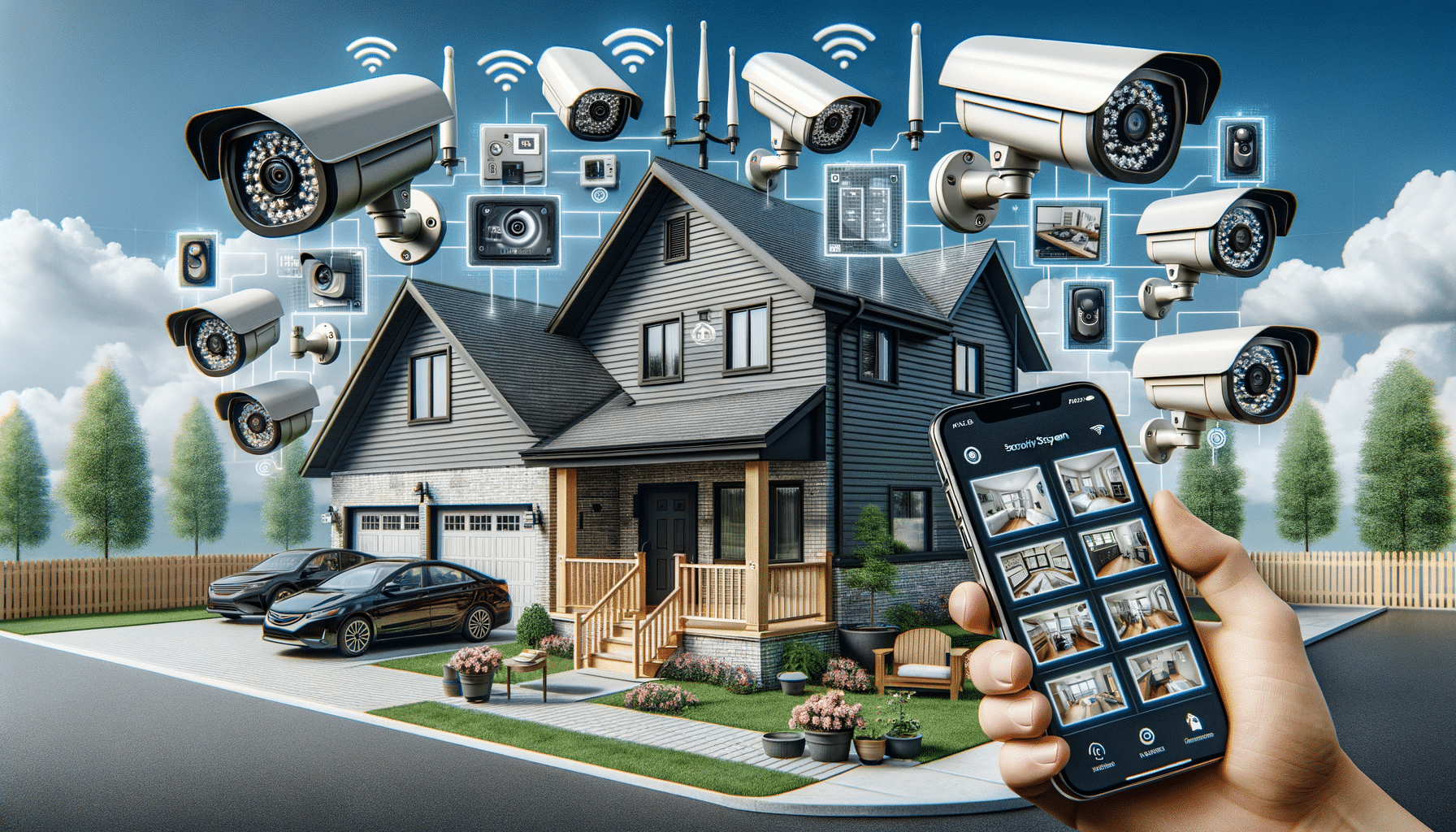
Home Security Cameras in the U.S.: How They Work and How to View Them Remotely
Understanding Home Security Cameras
Home security cameras have become an integral part of modern living, offering homeowners a sense of safety and peace of mind. These devices are designed to monitor and record activities around your property, ensuring that you are aware of any unusual events. With advancements in technology, security cameras now come equipped with features such as motion detection, night vision, and high-definition video quality. These features enhance the camera’s ability to capture clear images and videos, even in low light conditions.
Security cameras are available in various types, including indoor, outdoor, wired, and wireless models. Each type serves a specific purpose and is tailored to meet different security needs. For instance, outdoor cameras are built to withstand harsh weather conditions, while indoor cameras focus on monitoring the inside of your home. Wireless cameras offer flexibility in installation, as they do not require extensive wiring, making them a popular choice for many homeowners.
Understanding the capabilities and limitations of these devices is crucial in selecting the right security camera for your home. Consider factors such as the camera’s field of view, resolution, and storage options. Some cameras offer cloud storage, allowing you to access recorded footage from anywhere, while others may require local storage solutions. By carefully assessing your security needs and the features of available cameras, you can make an informed decision that enhances the safety of your home.
How to View a Security Camera From Anywhere
One of the most appealing features of modern security cameras is the ability to view live footage remotely. This capability allows homeowners to monitor their property in real-time, regardless of their location. To achieve this, most security cameras are equipped with internet connectivity, enabling them to transmit video feeds to a smartphone, tablet, or computer.
To view your security camera from anywhere, you’ll need to set up the camera with a compatible app or software provided by the manufacturer. This setup process typically involves connecting the camera to your home Wi-Fi network and creating an account with the app. Once configured, you can access the camera’s live feed through the app, providing you with a continuous view of your home.
Remote viewing is not only convenient but also enhances the security of your property. It allows you to respond promptly to any suspicious activity, potentially deterring criminal behavior. Additionally, many apps offer features such as motion alerts and two-way audio, enabling you to communicate with anyone near the camera. This level of interaction and monitoring ensures that you remain in control of your home’s security, even when you’re miles away.
Key Considerations Before Installing a Security Camera at Home
Before installing a security camera at home, it’s essential to consider several factors to ensure that you choose the right system for your needs. First, assess the areas you want to monitor and determine the type of camera that suits each location. Outdoor cameras should be weather-resistant and have a wide field of view, while indoor cameras should blend seamlessly with your home decor.
Next, consider the camera’s resolution and video quality. High-definition cameras provide clearer images, which can be crucial in identifying intruders or suspicious activities. Additionally, evaluate the camera’s night vision capabilities, as this feature is vital for monitoring your property after dark.
Another important consideration is the camera’s power source. Wired cameras require a constant power supply and may involve complex installation, while wireless cameras offer more flexibility but rely on battery power. Ensure that you choose a power source that aligns with your preferences and installation capabilities.
Finally, think about data storage options and privacy concerns. Decide whether you prefer local storage, such as a microSD card, or cloud storage, which allows for remote access to recorded footage. Be mindful of privacy policies and data protection measures offered by the camera manufacturer to safeguard your personal information.
By taking these considerations into account, you can select a security camera system that not only meets your security needs but also fits seamlessly into your lifestyle.
The Role of Security Cameras in Modern Home Protection
In today’s world, security cameras play a crucial role in safeguarding homes and providing peace of mind to homeowners. They act as a deterrent to potential intruders, as the presence of cameras can discourage criminal activity. The ability to capture and record events in and around your home also provides valuable evidence in the event of a security breach.
Beyond deterring crime, security cameras offer several advantages for everyday home management. For instance, they can be used to monitor deliveries, check on children or pets, and even ensure that maintenance work is being carried out as expected. This versatility makes them an essential tool for modern home management.
Moreover, the integration of smart technology with security cameras has further enhanced their functionality. Many cameras now offer features such as facial recognition, integration with smart home systems, and automated alerts, making them a comprehensive solution for home security. As technology continues to evolve, security cameras are likely to become even more sophisticated, offering enhanced protection and convenience for homeowners.
Conclusion: Enhancing Home Security with Thoughtful Camera Installation
In conclusion, home security cameras are a vital component of modern home protection strategies. They offer numerous benefits, from deterring crime to providing real-time monitoring capabilities. By understanding the different types of cameras available, how to access them remotely, and the key considerations before installation, homeowners can make informed decisions that enhance the safety and security of their property.
As you consider installing a security camera system, remember to evaluate your specific security needs and choose a system that aligns with your lifestyle and preferences. With the right setup, you can enjoy the peace of mind that comes with knowing your home is well-protected, no matter where you are.
